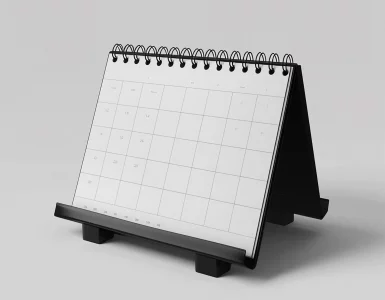When Erev Pesach falls on Shabbos, most Jewish households eat regular Challa for the Shabbos Seudos, taking care to prevent Chametz from scattering in the house and ensuring that all leftovers are discarded. Typically, the morning Seuda is eaten early before the Sof Zman Achilas Chometz.
This situation presents a challenge in a hospital that is run according to Halacha. As a large and complex institution, the hospital must eliminate all Chametz before Shabbos begins. It is impossible to ensure when Chametz will be consumed, and there are serious concerns of Chametz remaining in the hospital. For this reason, hospital policy must follow the basic Halacha.
This essay will discuss how the Seudos Shabbos should be conducted in a hospital when Erev Pesach falls on Shabbos.
There are three viable solutions:
- To provide kosher-for-Pesach matza.
- To provide Matza Ashira, in other words, baked goods containing only flour and fruit juice.
- To use Matza that was baked sheLo l’Shma (not for the sake of the Mitzva).
The Issur of Eating Matza on Erev Pesach
The Yerushalmi (Pesachim 10:1) records that Chazal prohibited eating Matza on Erev Pesach. The Rambam (Chametz u’Matza 6:12) and Rema (O.C. 471:2) both rule accordingly. The Rokeach bases this prohibition on the Pasuk, “In the evening, you shall eat Matzos” (Shemos 12:18), but the Pri Chadash (O.C. 471:2) asserts that this is nothing more than an Asmachta, and there is only an Issur d’Rabbanan.
There are two reasons given for the Issur:
- The Rambam explains that it is to ensure a Heker (distinction) from the Matza eaten l’Shem Mitzva at the Seder.
- The Meiri (Pesachim 13a) holds that it is to ensure that one eats Matza at the Seder with an appetite.
The Shulchan Aruch rules: “Before the tenth hour, it is permissible to eat Matza Ashira.” The Rema adds: “However, Matza with which one fulfills the mitzvah at night is prohibited the entire day.”
The Rema’s ruling follows the Rif (Pesachim 16a). The Ramban (Milchamos 15b) supports this conclusion from the Yerushalmi. The Ran (Pesachim 16a) dismisses this position (see, however, the Birkei Yosef), but the Magid Mishna concurs with the Rambam. The Ba’al haMaor holds that the Issur only begins when eating Chametz becomes forbidden; the Rosh and Ritva rule similarly.
The basis of the Machlokes appears to be a differing understanding of the words of the Yerushalmi that eating Matza on Erev Pesach is akin to “engaging in relations with one’s betrothed in her father’s house”. Is a person considered betrothed and thus “in the father-in-law’s home” from the start of Erev Pesach or only from the Sof Zman Achilas Chametz?
As stated above, the Rema rules stringently that the prohibition lasts all day. There is some debate as to whether the Issur even applies from the night before. The Magen Avraham (O.C. 471:6) appears to suggest that the Issur starts at night, but most Poskim, including the Mishna Berura (O.C. 471:12), rule that it only applies from Alos haShachar. However, R’ Moshe Feinstein zt”l (Igros Moshe, O.C. 1:155) rules that one should be concerned for the Magen Avraham’s view.
In a hospital, this stringency cannot be observed, nor can the custom of abstaining from Matza from Rosh Chodesh Nisan. Therefore, if no other option exists, kosher-for-Pesach Matza should be used for the Friday night Seuda.
For the Shabbos morning Seuda, Matza cannot be eaten; alternative solutions must be considered.
Matza Ashira (“Egg Matza”)
One option is Matza Ashira, which the Shulchan Aruch permits until the tenth hour. The Mishna Berura (O.C. 471:10) explains that since it is kneaded with fruit juice, it does not qualify as “poor man’s bread” (“Lechem Oni”) and cannot be used for the mitzvah of eating Matza. This is true even if only a small amount of fruit juice is added if its taste is discernible.
The Shulchan Aruch does not forbid eating Matza Ashira on Pesach; he simply rules that it does not fulfill the criteria of Lechem Oni. However, the Rema (O.C. 462:4) notes that Matza Ashira was generally avoided in the communities of Ashkenaz, except by the sick or elderly who needed it. Today, even those who generally follow the Shulchan Aruch’s rulings avoid Matza Ashira, particularly given concerns as to how it is baked today. For Ashkenazim, although the Rema permits Matza Ashira for the sick or elderly, R’ Moshe Feinstein zt”l was reluctant to permit it, given the number of Rishonim who forbid it.
Does the Rema forbid Matza Ashira even on Erev Pesach? We can infer his opinion from his Psak about Seuda Shlishis on Erev Pesach that falls on Shabbos (444:1). The Shulchan Aruch rules that Matza Ashira should be used for Seuda Shlishis, but the Rema forbids it (fruit, meat, or fish should be eaten instead). This implies that he forbade eating Matza Ashira on Erev Pesach as well.
Due to these concerns, especially given the great concern of Chametz being present in these Matzos, Matza Ashira is not a viable solution for a hospital setting.
Matza Baked sheLo l’Shma
R’ Betzalel Zolty zt”l[1] proposed another solution: baking Matza with explicit intent that it not be Kosher for the Mitzva. Since this Matza cannot be used for the Seder, it could be eaten on Erev Pesach. While some Poskim disagreed, others saw merit in this approach in cases where there was great concern that Chametz would remain after the Zman Issur. The Minchas Yitzchak (8:37), while disagreeing strongly with the idea, agreed that when there was no other option, it was the “least bad option” (though it should not be broadly publicized under any circumstances). R’ Elyashiv (quoted by R’ Efrati Shlit”a in his Sefer Yisa Yosef) similarly held that it should be done in military bases or in hotels in which the alternative was regular Matza (though only until Chatzos[2]).
R’ Elyashiv also added that since one of the reasons for forbidding Matza on Erev Pesach is to ensure one eats it with an appetite at the Seder, there is no basis to distinguish between Matzos that were made l’Shma and those that were not. Therefore, this solution should only be utilized when there is no other choice.
The Or l’Tzion[3] (3:13) notes that the requirement of “l’Shma” for Matzos may not mean, “l’Shem Matzas Mitzva” but simply that there has been clear intent for the Matza to not become Chametz (this appears to be the position of the Rambam). If so, these Matzos that have been made specifically not l’Shem Mitzva, but are certainly not Chametz, may well be suitable for the Seder, in which case it would be forbidden to eat them on Erev Pesach. He also notes that the requirement of l’Shma for Matza may not even be a Chiyuv d’Oraisa, in which case these Matzos would be suitable for the Seder, mid’Oraisa. He adds that, since these Matzos are Lechem Oni, the Issur should apply to them regardless. He concludes that this solution should only be utilized in cases of great need, such as in military bases or similar situations.
Considering the above, and with the agreement of haGaon Rav Asher Weiss Shlit”a, the Shaarei Zedek Medical Center provides special Lo l’Shma Matza for bedridden patients who cannot eat in areas designated for Chametz. This prevents the more serious issue of Chametz in the hospital after the prohibited time.
[Further references: Orchos Rabbenu (2, p12), Divrei Yatziv (O.C. 188), b’Tzel haChochma (3:111), and l’Horos Nasan (4:39-40).][1] R’ Bezalel Zolty zt”l (1920-1982) served as the Chief Ashkenazi Rabbi of Yerushalayim from 1977 until his passing.
[2] As there are several Rishonim who hold that the Issur only begins at Chatzos.
[3] R’ Benzion Abba Shaul zt”l (1924-1998), Rosh Yeshiva of Yeshivat Porat Yosef in Yerushalayim














Add comment